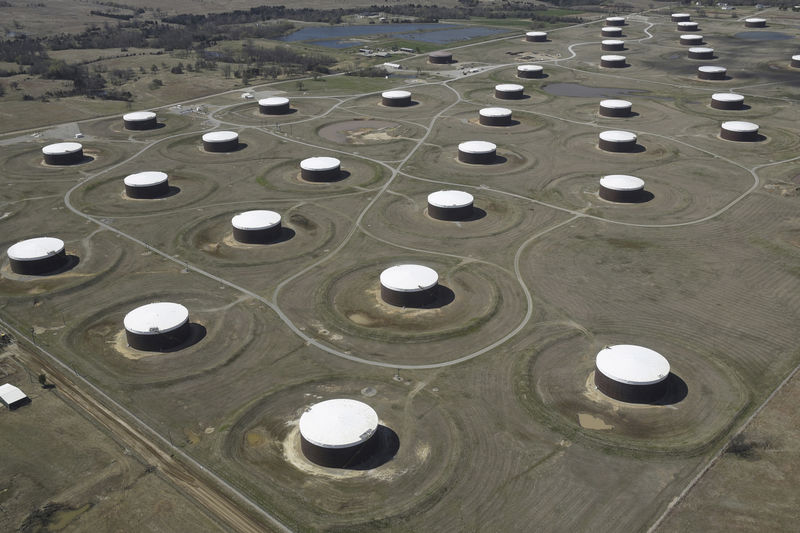By Devika Krishna Kumar and Laila Kearney
NEW YORK (Reuters) - U.S. crude traders are bracing for increasing supplies at Cushing, Oklahoma, the delivery point for benchmark crude futures, as unexpected refinery issues add to inventories that are already at the highest in more than a year.
Inventories at Cushing rose to 42.6 million barrels in the week to Feb. 1, the highest level since early January 2018, the U.S. Energy Information Administration said. Problems at a key Midwest refinery, along with upcoming seasonal maintenance, have traders believing supplies will rise more than expected at Cushing in coming weeks.
A fire at Phillips 66's 330,000 barrel-per-day (bpd) joint-venture Wood River, Illinois, refinery and a unit closure at the Ponca City, Oklahoma, plant added to the bearish outlook for prices, traders said.
The discount for front-month U.S. crude for delivery in March and futures for delivery in April widened to as much as 39 cents a barrel on Monday, the most in nearly a year and a half, reflecting expectations of supply increases at the storage hub. Increased supply makes traders less inclined to pay higher prices for near-term oil.
The weakness in U.S. crude futures pushed the discount for U.S. West Texas Intermediate (WTI) versus international benchmark Brent to the widest level in nearly two months, at $9.52 a barrel.
"The outages, whether they're unplanned, or even more importantly the planned ones, are going to be mounting here, and that's going to engender a significant rise at Cushing," said John Kilduff, a partner at Again Capital Management in New York.
The second largest crude distillation unit (CDU) was shut by a fire on Sunday at Phillips 66's joint-venture Wood River refinery, a source familiar with plant operations said. Phillips 66 (NYSE:PSX) also shut the second-largest CDU at its Ponca City refinery for a planned overhaul, a source said.
"It's a perfect storm of bearish information this morning for WTI," said Scott Shelton, a broker at ICAP (LON:NXGN) in Durham. "Fears of tank tops will only worsen for the second quarter on this information."
U.S. refiners were estimated to have about 1.8 million bpd of capacity offline in the week ending Feb. 8, increasing offline capacity by 629,000 bpd from a week earlier, research company IIR Energy said on Friday.
Moreover, traders said some barrels headed for Patoka, Illinois, have been diverted to Cushing following an outage on a section of TransCanada's Keystone pipeline.

"You're getting some additional flow into Cushing. That'll put pressure on WTI," one crude trader said.